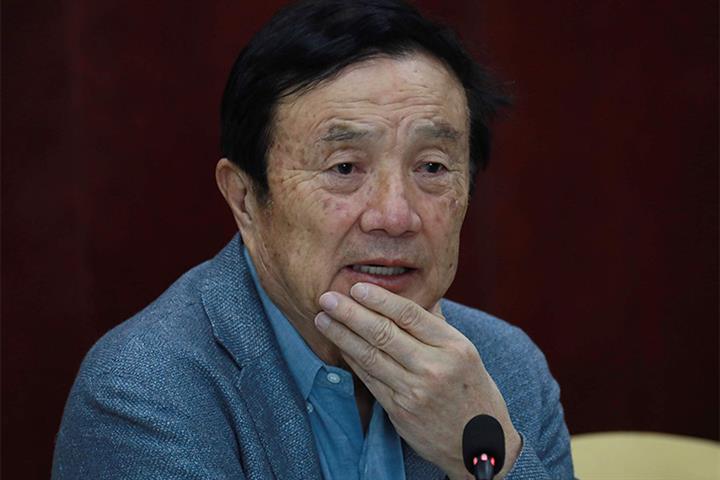 Huawei Spent Almost USD24 Billion on R&D in 2023 to Deal With US Tech Sanctions, Founder Says
Huawei Spent Almost USD24 Billion on R&D in 2023 to Deal With US Tech Sanctions, Founder Says(Yicai Global) March 20 -- Huawei Technologies invested USD23.8 billion in research and development last year as the Chinese telecoms giant tackled the issues caused by the US blocking the firm’s access to advanced technology, founder Ren Zhengfei said.
Huawei replaced more than 13,000 components and redesigned over 4,000 circuit boards in its products in the past three years, according to the transcript of a speech Ren gave at a symposium of the firm’s Spark award winners and other experts on Feb. 24 that Shenzhen University posted on its website on March 17.
Shenzhen-based Huawei was added to the US government’s so-called Entity List in May 2019 over alleged national security concerns, thereby barring US companies from buying its products and from selling it their hardware and software without a special license.
The embargo included semiconductors not only made in the United States, but also those made in other countries using US software and technology, inflicting severe damage on Huawei’s global supply chain and essentially cutting off its access to fifth-generation chips.
Huawei’s circuit board business only lately stabilized, Ren noted, adding that the firm now boasts a supply chain of homegrown parts and components. Huawei will continue to expand its investment in the research and development of cutting-edge technologies, he said.
MetaERP, the resources planning software Huawei developed using its own operating system, database, and compiler, passed practical tests to be used across the firm’s departments worldwide and the annual settlement trial of the company’s ledger, Ren pointed out. Moreover, many design tools have been made available to the public through Huawei’s cloud services, gradually overcoming the supply disruption, Ren said.
“China still has some difficulties, and we’re making up for the gap in chips through other means,” Ren noted.
Regarding the recent surging popularity of artificial intelligence technologies, Ren said that the competition on large-scale AI models will have their ups and downs, with the direct contribution of AI companies to society probably less than 2 percent, while the rest is contributed by agriculture and industry.
The popularization of AI services requires 5G networks, and Huawei can build only the underlying AI computing platform, not the application platform, Ren added, urging attention to be directed to industrial and agricultural applications, where he believes AI models have the most potential.
Huawei launched its Spark business accelerator program in 2020. Universities and scientists from all over the world can take part in its various programs by proposing solutions to challenges put forward by Huawei. The winners receive prize money and the opportunity to work for Huawei.
Editor: Futura Costaglione